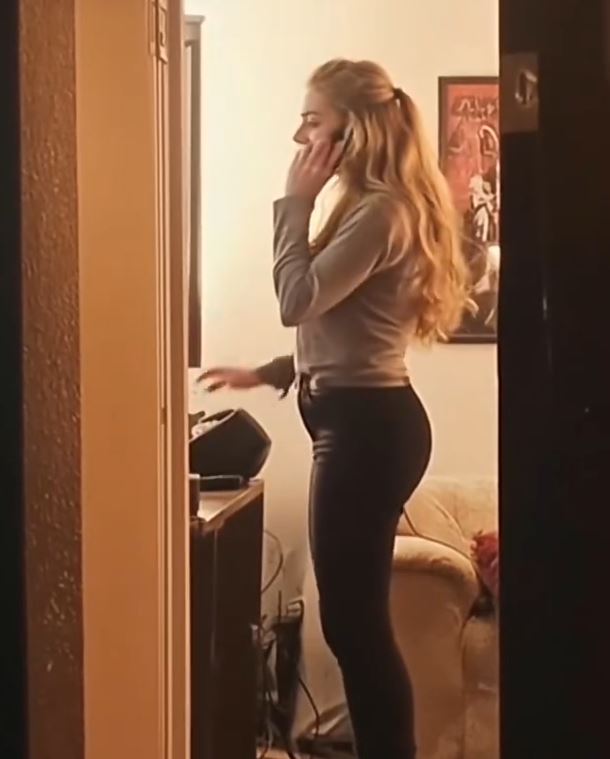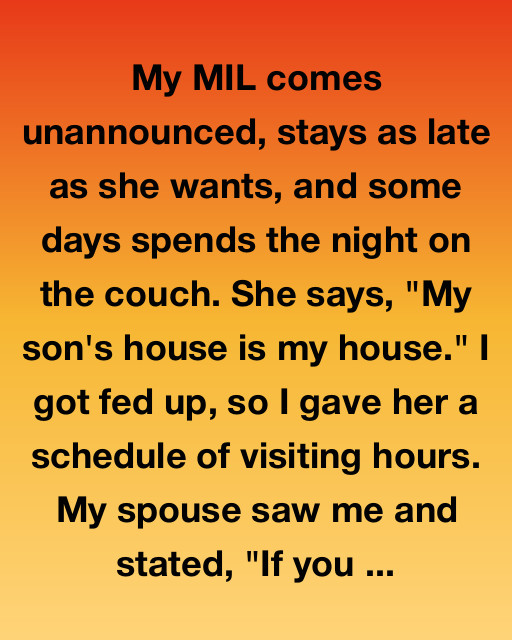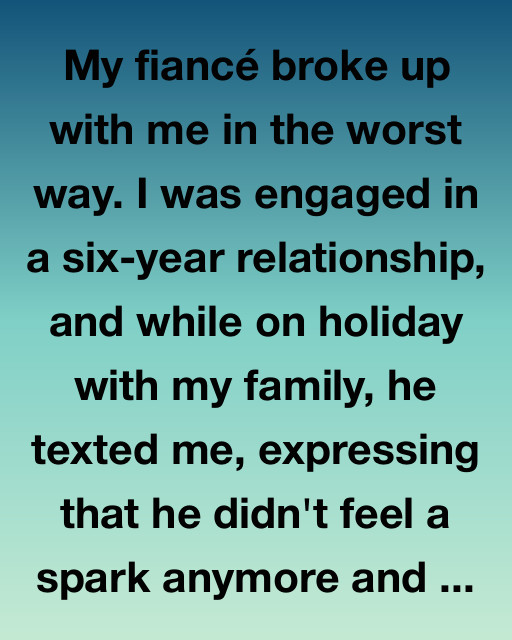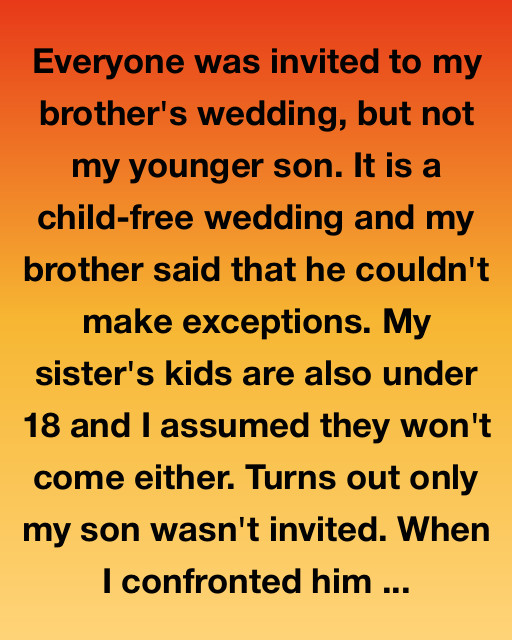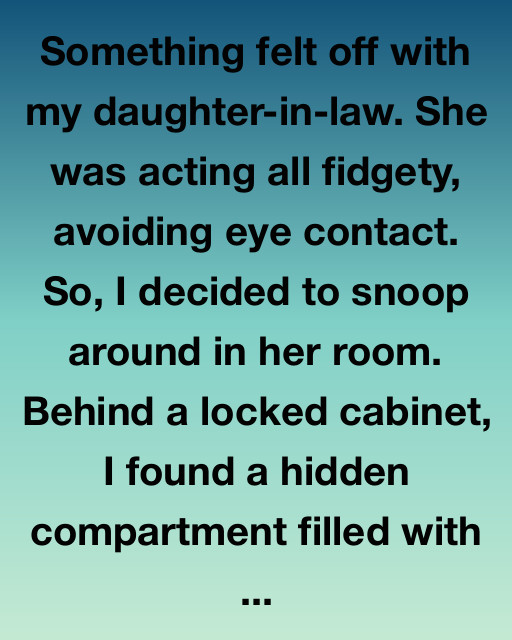My husband died when our daughter, Susie, was just two weeks old.
A car crash. That’s what they told me. Sudden, brutal, and senseless. One minute, Charles was kissing my forehead as he left for a quick grocery run. The next, I was clutching a police officer’s hand, struggling to process words that didn’t make sense.
He was gone. Just like that.
I was 23. Grief clung to me like a second skin. Worse still, I held a newborn in my arms who needed more than my broken self could offer. That’s when Diane, Charles’s mother, stepped in. She worked in the mayor’s office and promised “to make everything easier” for me.
I didn’t argue. I didn’t even question.
I just nodded while the funeral went on. It was a closed casket, I was told that there were injuries to his face. Diane insisted on a quick cremation. She made the calls. I stayed in bed, holding Susie, letting Diane smooth over the cracks of my world like wallpaper on rotting walls.
I never saw his body.
I told myself that it didn’t matter. Dead was dead, right?
Eighteen years passed. And somehow, I survived them.
I went from a girl cradling a newborn and grief in equal measure to a woman piecing life together in quiet, deliberate ways. It wasn’t brave or beautiful… it was necessary.
You get up. You make breakfast. You fold tiny clothes. You keep going.
Susie grew up kind. Curious. She was sensitive in ways that sometimes broke me. She had Charles’s eyes, those soft brown eyes, always searching the world. And his dimple when she smiled… though it came slower, more cautious, like whatever it was needed to be worthy of her smile.
As she grew older, her questions came like whispers in the night. Gentle. Careful. Almost as if she didn’t want to hurt me by asking.
“What was Dad like?” she’d say, usually when my hands were busy folding laundry or stirring soup, or wiping down counters.
I gave her what little I had. Stories that wore thin from retelling. I told her about his awful dad jokes that made me roll my eyes. Photos of his boyish grin. The memory of how he used to sing in the car, always off-key.
She accepted them, but I could feel the space behind her eyes. The space where real knowing should have lived.
For a long time, it was enough. Until it wasn’t.
It happened on an ordinary Tuesday evening. I was walking past the hallway when I heard Susie’s voice. It was low, tender, and she was whispering through the landline.
“Okay… I miss you too, Dad.”
My entire body froze.
Dad. Dad?!
I pressed my hand against the wall to steady myself. Susie turned, saw me, and hung up so fast the receiver clattered back onto the base.
“Who were you talking to?” I asked carefully, though my voice cracked halfway through.
She wouldn’t meet my eyes.
“Wrong number,” she muttered before darting upstairs.
I stood there for a long time, heart hammering, mind racing.
Wrong number? No. Not that soft tone. Not Dad.
That night, after she went to bed, I did something I’d never done before. I snooped.
The landline’s call log wasn’t hard to access. There it was. A number I didn’t recognize.
I stared at it for a long time before dialing.
The rings echoed through the silence, each one tightening around my chest like invisible hands. I almost hung up. My thumb hovered over the button. This was insane, I thought.
Delusional.
And then, breathing.
Soft. Male. Familiar in a way that made my stomach lurch violently.
“Susie,” the voice murmured, warm and relieved, as if this was a nightly ritual between loved ones. “I was starting to think you wouldn’t call again tonight.”
The words slammed into me. I couldn’t breathe.
I couldn’t think.
My mouth moved before my mind caught up.
“Who is this?” I asked, though deep down, I already knew. The dread tasted metallic, bitter on my tongue.
Silence followed. Thick and deliberate.
Click.
The line went dead.
The room was too still, yet somehow everything spun. I sat there gripping the phone, my knuckles white as waves of confusion and horror crashed over me.
Charles was dead. I knew he was dead. I had mourned him. Buried him, or at least, I thought I had.
Had I said goodbye to a man who was never in that casket?
Suddenly, nothing in my world felt certain anymore. Not even the grief I’d clung to like a lifeline.
The next morning, after a night of pacing and imagining every horrifying scenario, I confronted Susie at breakfast.
“Sit down,” I said gently but firmly.
Her face stiffened. She looked ready to lie again, but something in my tone made her pause.
“Who were you talking to on the phone last night?” I asked.
“I told you,” she said, eyes downcast, “wrong number.”
“Susie,” I whispered, “don’t lie to me. Please. I deserve the truth.”
She hesitated. Then her voice broke.
“He said he’s my dad.”
My legs nearly gave out. I gripped the counter behind me.
“What do you mean he said?”
“I’ve been talking to him for almost two months,” she said. “It started with a message on my Instagram. From a woman named Maureen.”
Maureen.
That name hit me like a slap. Maureen had been Charles’s cousin, though I hadn’t heard her name in over a decade. She had a history of shady dealings, and Diane used to call her “the family embarrassment.”
“She said she knew my dad… that he wanted to talk to me. At first, I ignored it. I thought it was a scam. But she sent photos.”
“What kind of photos?”
Susie pulled out her phone and opened a hidden folder. She turned it toward me.
There was Charles. But older. Tired. Beard streaked with gray. Eyes softer, almost ashamed.
My stomach twisted.
“He’s alive,” I whispered. “Oh my God.”
“Why did you lie to me?” Susie asked, and that question cut deeper than anything else.
“I didn’t lie,” I said, shaking my head. “I didn’t know. They told me he died.”
The pieces started clicking into place in my head—Diane’s insistence on a closed casket. The rush to cremate. Her constant control.
I stood up, grabbed my coat, and told Susie to stay home.
I drove straight to Diane’s retirement condo.
She answered in her usual pressed slacks and pearls, like nothing ever touched her.
I didn’t wait for an invitation.
“Where is he?” I asked.
She blinked.
“I don’t know what you mean.”
“Don’t play games. He’s alive. Susie’s been talking to him. Where. Is. He.”
Her expression cracked for the first time in years. Then, she sighed, walked over to the liquor cabinet, and poured herself a drink.
“I did what I had to,” she said quietly. “For the sake of all of you.”
“You faked his death?”
“I hid the truth.”
She told me the story like it was some noble act. Charles had fallen into something dark—gambling debts, dangerous people. She said she pulled strings to make it disappear, but the threats wouldn’t stop.
Then he ran.
According to her, Charles begged her to tell me he’d died. He didn’t want to “drag us down” or put Susie at risk. She helped him disappear. Paid off whoever needed to be paid.
“You stole my life,” I whispered.
“I saved it,” she replied.
I left without another word.
When I got home, I sat on the couch with Susie and told her everything.
She didn’t cry. She didn’t yell. She just sat there quietly, and asked the only question that mattered.
“Can I meet him?”
I didn’t have an answer then. But three days later, Charles did.
He came to the house.
He stood on our porch like a stranger, shoulders hunched, hair messy. The dimple was still there, but it didn’t shine like it used to.
I stood in the doorway and stared. He stared back.
Neither of us moved.
Then Susie walked past me, straight into his arms.
He sobbed.
So did she.
So did I.
That day changed everything. But it didn’t fix everything.
We didn’t become a perfect family overnight.
I had questions. He had regrets. Susie had hope and confusion and eighteen years of missing pieces.
We took it slow.
Charles stayed in town. Got a small apartment. Started working odd jobs under his real name again.
Eventually, he came clean about everything. The debts, the shame, the reasons he’d run.
And eventually, I forgave him.
Not for leaving.
But for trying to come back.
Because sometimes, when the truth finally finds its way to the surface, it doesn’t just shatter what you knew — it rebuilds something new in its place.
Today, Charles is in Susie’s life. Not as the father who raised her, but as the father who’s trying now. And sometimes, that’s enough.
As for Diane… she passed a few months later. She left a letter. No apology. Just a sentence scrawled across the page:
“Some lies are heavier to carry than death.”
I don’t hate her.
But I wish she’d trusted me to decide what was best for myself and my daughter.
Because secrets protect no one in the end—they just delay the damage.
The real healing comes when truth is allowed to breathe.
If you’ve read this far, maybe the takeaway is this:
Don’t let silence live where truth belongs.
And if there’s someone you owe honesty to, pick up the phone. Before someone else does.
❤️ Share this if it moved you—your support means more than you know.
